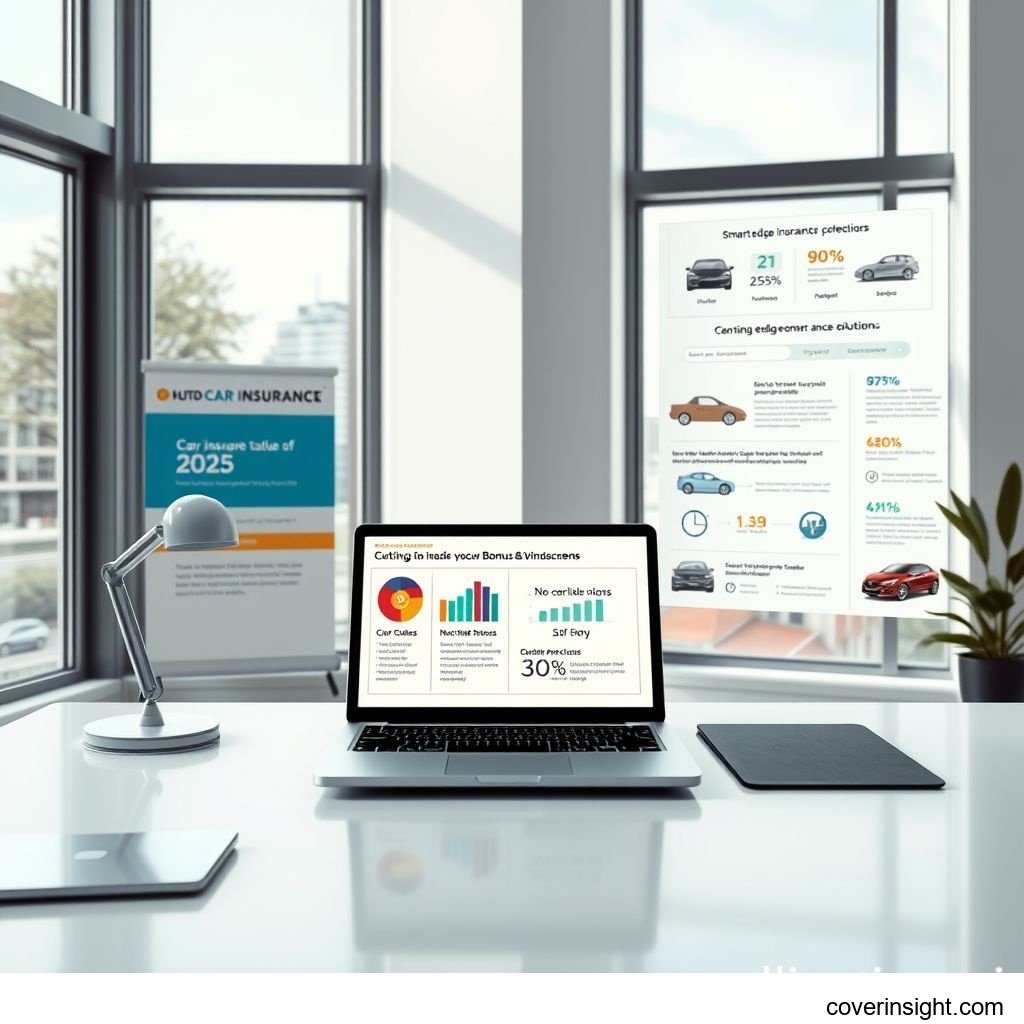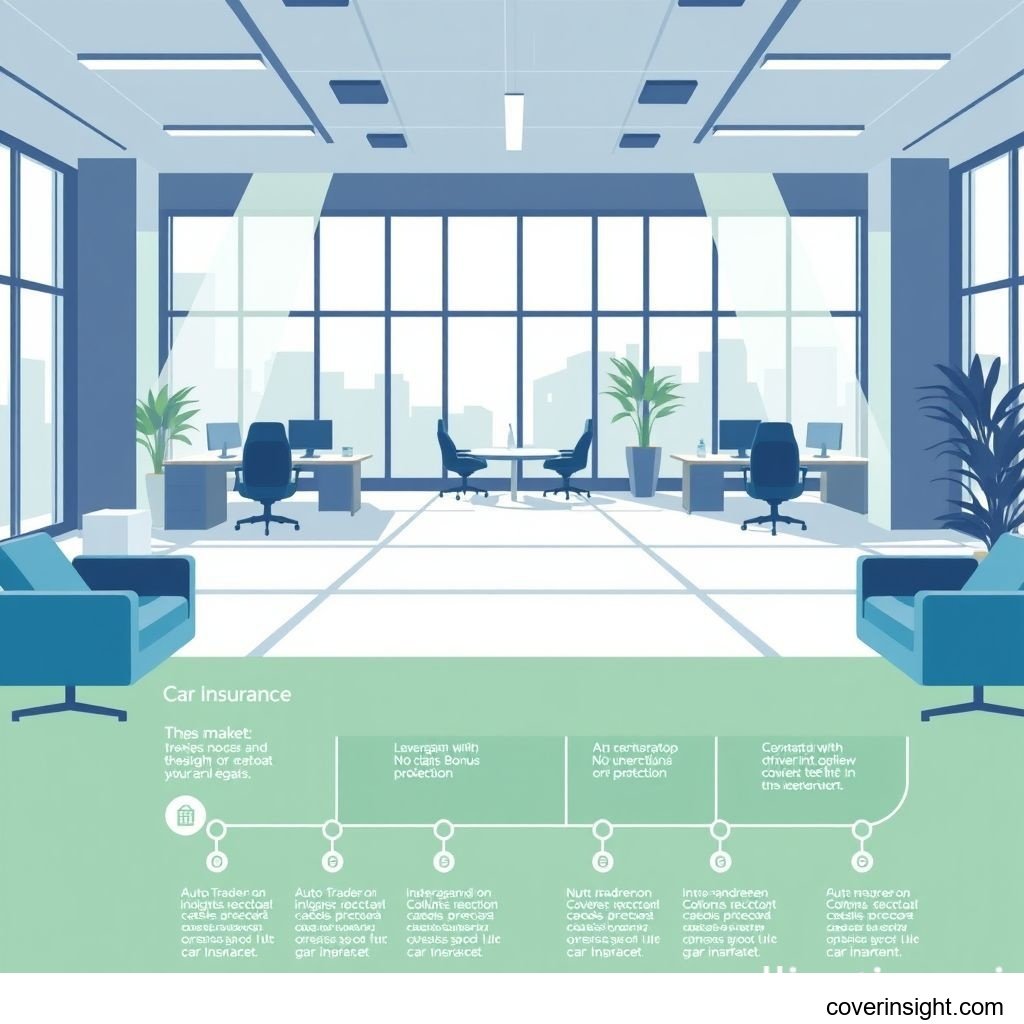Introduction
Navigating the landscape of car insurance in Great Britain for 2025 can seem daunting, but it's an essential aspect of responsible vehicle ownership. With evolving regulations and a competitive market, understanding your options is more crucial than ever. This comprehensive guide aims to demystify policies, highlight key coverages like No Claims Bonus (NCB) protection and windscreen options, and help you make informed decisions to secure your financial future on the road. Whether you're a new driver or looking to renew, smart car insurance ensures peace of mind against unforeseen incidents and legal obligations.
No Claims Bonus (NCB) Protection Explained
One of the most valuable assets a driver can accrue is their No Claims Bonus (NCB). This discount on your car insurance premium rewards you for not making a claim over a set period. In 2025, protecting this bonus is a key consideration for many drivers.
What is NCB?
The No Claims Bonus (also known as a No Claims Discount) is a reduction in your insurance premium, offered by insurers for each year you drive without making a claim on your policy. The more claim-free years you accumulate, the larger the discount typically becomes, often reaching substantial savings after five or more years. It's a testament to your safe driving record.
Benefits of No Claims Bonus Protection
While an NCB can significantly lower your premiums, a single claim (even a minor one) can cause you to lose a portion, or even all, of your hard-earned discount. This is where no claims bonus protection becomes invaluable.
Benefits include:
-
Retaining Discount: Even after making a claim, your protected NCB remains intact, or is only minimally reduced, depending on your insurer's terms.
-
Peace of Mind: You can make a claim for an incident without the immediate fear of losing years of accumulated discount.
-
Financial Stability: Helps prevent sudden, significant increases in your premium after an accident.
How No Claims Bonus Protection Works
When you opt for no claims bonus protection, you typically pay an additional fee on top of your standard premium. In return, your insurer agrees to waive the impact of a certain number of at-fault claims on your NCB within a policy period. For example, some policies allow for one or two at-fault claims without affecting your NCB. It's important to understand:
-
Not Unlimited: Protection usually covers a limited number of claims (e.g., one or two per year).
-
Not Premium Freeze: While your NCB is protected, your premium might still increase upon renewal due to other factors like inflation, changes in risk, or general market trends.
-
Specific Terms: Always read the policy wording carefully as the exact terms of no claims bonus protection can vary between providers.
Understanding Windscreen Cover Options
Damage to your vehicle's windscreen is more common than many drivers realise, often caused by stones flicking up from the road. While it might seem minor, a crack or chip can quickly worsen, impairing visibility and potentially leading to a failed MOT test. Understanding your windscreen cover options is therefore crucial for comprehensive car insurance.
Types of Windscreen Damage
Windscreen damage typically falls into two categories:
-
Chips: Small impacts, usually less than 10mm in diameter, often repairable without replacing the entire windscreen.
-
Cracks: Larger breaks that often spread across the glass, usually requiring a full replacement of the windscreen.
Standard vs. Specialist Windscreen Cover
Most comprehensive car insurance policies include some form of windscreen cover as standard. However, the extent of this cover and your windscreen cover options can vary:
-
Standard Windscreen Cover:
-
Often covers repair or replacement of the front windscreen, and sometimes side and rear windows.
-
An excess usually applies, which is often lower for repairs than for replacements.
-
Crucially, windscreen claims typically do NOT impact your No Claims Bonus, but always confirm this with your insurer.
-
-
Specialist Windscreen Cover / Enhanced Options:
-
Some policies offer higher limits for replacement or cover for sunroofs.
-
Policies for luxury vehicles or those with advanced driver-assistance systems (ADAS) calibrated through the windscreen may have specific clauses due to higher repair costs.
-
Consider specific windscreen cover options if you drive a vehicle with complex integrated technology.
-
Making a Windscreen Claim
If your windscreen is damaged:
-
Assess Damage: Determine if it's a chip or a crack.
-
Contact Insurer: Call your insurance provider's dedicated windscreen helpline or approved repairer as soon as possible.
-
Repair vs. Replace: The repairer will assess if the damage can be safely repaired (often cheaper with a lower or no excess) or if a full replacement is needed.
-
Excess Payment: Pay your applicable excess directly to the repairer.
Using an insurer-approved repairer often streamlines the process and ensures the claim doesn't impact your NCB, as it's handled outside the main claims process.
Coverage Details
Understanding the different levels of car insurance coverage available in GB is fundamental to choosing the right policy for your needs.
What’s Included
GB car insurance policies generally come in three main tiers:
-
Third Party Only (TPO): This is the minimum legal requirement. It covers:
-
Injury to other people.
-
Damage to other people’s property.
-
It does not cover damage to your own vehicle or injuries to yourself.
-
-
Third Party, Fire and Theft (TPFT): This builds on TPO by adding cover for:
-
Fire damage to your vehicle.
-
Theft of your vehicle.
-
Attempted theft damage to your vehicle.
-
-
Comprehensive: This offers the highest level of protection and includes everything from TPFT, plus:
-
Damage to your own vehicle, regardless of fault.
-
Medical expenses (limited amounts).
-
Personal belongings cover (limited amounts).
-
Legal costs for personal injury claims.
-
Courtesy car cover (often an optional extra or with specific conditions).
-
Additional benefits like uninsured driver promise or new car replacement.
-
Common Exclusions
While comprehensive policies offer broad protection, it's vital to be aware of what is typically not covered:
-
Wear and Tear: Routine maintenance, tyre punctures, or mechanical breakdowns.
-
Intentional Damage: Damage caused deliberately by you or someone with your permission.
-
Unlicensed Driving: Accidents occurring while the driver is unlicensed or under the influence of drugs/alcohol.
-
Using the Wrong Fuel: Damage caused by putting the incorrect fuel type in your vehicle.
-
Racing or Track Use: Any incidents that occur during racing, rallies, or on a private track.
-
Unreported Modifications: Significant modifications to your vehicle not declared to your insurer.
-
Beyond Territorial Limits: Incidents occurring outside GB unless specific European cover is purchased.
Cost Analysis
The cost of car insurance in GB is highly individualised, influenced by a multitude of factors. Understanding these elements can help you anticipate premiums and identify potential savings.
Price Factors
Insurers assess risk based on various data points. Key factors affecting your car insurance premium include:
-
Your Age: Younger, less experienced drivers typically face higher premiums due to higher statistical risk.
-
Your Driving History: A clean record with no claims or convictions (especially speeding points) will result in lower premiums. Your No Claims Bonus is a significant factor here.
-
Your Vehicle:
-
Make & Model: Vehicles with powerful engines, high values, or that are more frequently stolen or involved in accidents cost more to insure.
-
Insurance Group: Cars are categorised into insurance groups (1-50), with higher groups meaning higher premiums.
-
-
Your Location: Urban areas with higher traffic density, crime rates, and accident statistics generally lead to higher premiums than rural areas.
-
Annual Mileage: The more you drive, the higher the perceived risk, potentially increasing your premium.
-
Where Your Car is Kept: Garaged cars are typically cheaper to insure than those parked on the street.
-
Excess Amount: The voluntary excess you agree to pay in the event of a claim. A higher voluntary excess can reduce your premium.
Saving Tips
Reducing your car insurance costs is often possible with a strategic approach. Consider these tips:
-
Shop Around: Use comparison websites and get direct quotes from insurers. Prices can vary significantly for the exact same level of cover.
-
Increase Voluntary Excess: Opting for a higher voluntary excess will reduce your premium, but ensure you can comfortably afford to pay it if you need to claim.
-
Improve Security: Installing approved alarms, immobilisers, or trackers can deter theft and may reduce your premium. Parking in a garage overnight can also help.
-
Reduce Mileage: If you don't drive much, consider a low-mileage policy or 'pay-as-you-go' options, which can be cheaper.
-
Build Your No Claims Bonus: Drive safely and avoid making claims to accumulate a substantial NCB. Consider no claims bonus protection once you have a good record.
-
Consider a Black Box (Telematics): Especially for younger drivers, a telematics policy monitors driving behaviour and can reward safe drivers with lower premiums.
-
Choose Your Car Wisely: Research insurance groups before buying a new car. Smaller, less powerful cars are generally cheaper to insure.
-
Pay Annually: Paying your premium in one lump sum is almost always cheaper than monthly instalments, which often include interest.
-
Combine Policies: Some insurers offer discounts for combining multiple policies, such as multi-car insurance or home and car insurance bundles.
-
Review Cover Annually: Don't just auto-renew. Your circumstances change, and so do market prices. Review your policy every year.
Choosing Your Smart Car Insurance Policy
Selecting the right car insurance policy goes beyond just finding the cheapest premium. It involves understanding your needs and ensuring adequate protection.
Comparing Quotes Effectively
When comparing quotes, look beyond the headline price:
-
Cover Level: Ensure you're comparing like-for-like (e.g., comprehensive vs. comprehensive).
-
Excess Amounts: Note both compulsory and voluntary excesses.
-
Included Benefits: Check for things like legal cover, breakdown cover, courtesy car, and personal belongings cover.
-
Add-ons: See what features like no claims bonus protection or enhanced windscreen cover options are available and their cost.
-
Insurer Reputation: Check reviews and ratings for customer service and claims handling.
Reading the Policy Wording
This document is your contract with the insurer. It's crucial to read it, especially the sections on:
-
Terms and Conditions: Understand your obligations and the insurer's.
-
Exclusions: Know what's not covered to avoid nasty surprises.
-
Claims Procedure: Be clear on how to make a claim and what information you'll need.
-
Specific Clauses: Look for details on how NCB protection works, windscreen repair limits, and other specific features relevant to your needs.
Key Considerations for 2025
As we move through 2025, a few trends are shaping the car insurance market:
-
Inflationary Pressures: Rising costs of vehicle parts and repairs are impacting premiums.
-
EV Adoption: Insurance for electric vehicles can vary, sometimes being higher due to specialist repair needs.
-
Cyber Risks: Data security and privacy are increasingly important when sharing personal information with insurers.
-
Increased Road Usage: Post-pandemic, more traffic can lead to more incidents, influencing overall premiums.
Taking these factors into account helps you select a future-proof policy.
FAQs
How much does car insurance cost?
The cost of car insurance varies widely, typically ranging from a few hundred pounds to several thousand per year. It depends on numerous personal factors (age, driving history, location) and vehicle-specific factors (make, model, insurance group). Getting quotes tailored to your circumstances is the best way to find out.
What affects premiums?
Premiums are affected by your age, driving experience, claims history (including your No Claims Bonus), the type of vehicle you drive, where you live, where you park your car, your estimated annual mileage, and the level of cover you choose. Factors like no claims bonus protection and windscreen cover options also impact the total premium.
Is car insurance mandatory?
Yes, in Great Britain, it is legally mandatory to have at least Third Party Only car insurance to drive or even keep a vehicle on public roads.
How to choose the right policy?
To choose the right policy, assess your driving needs, budget, and desired level of protection. Compare quotes from multiple providers, carefully review the policy wording for exclusions and excesses, and consider additional benefits like no claims bonus protection or comprehensive windscreen cover options. Don't just pick the cheapest; ensure it meets your requirements.
Consequences of no coverage?
Driving without valid car insurance in GB can lead to severe consequences, including: a fine of £300 and 6 penalty points on your licence; your vehicle being seized, impounded, and potentially destroyed; and if the case goes to court, an unlimited fine and disqualification from driving. It's simply not worth the risk.








Comments